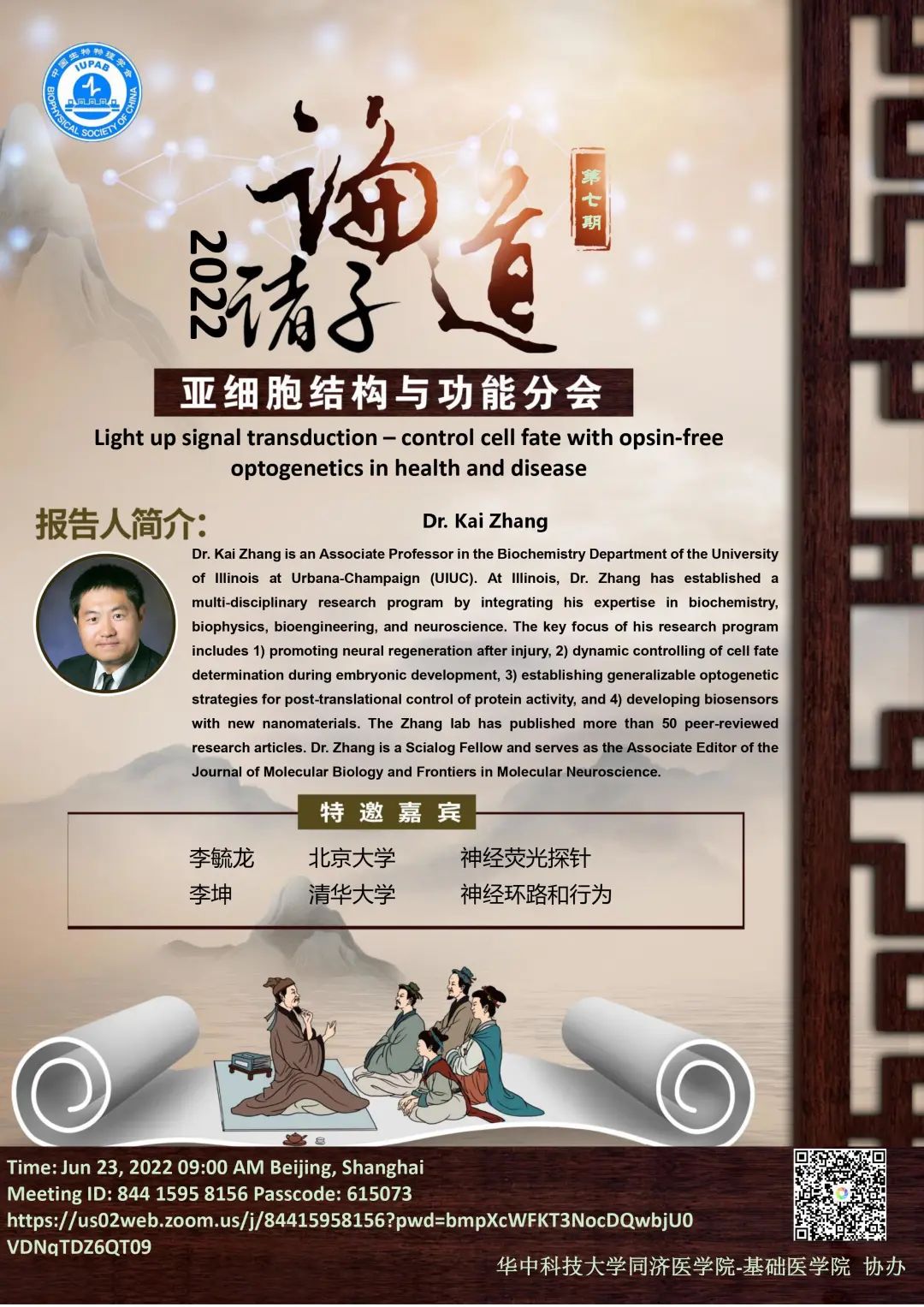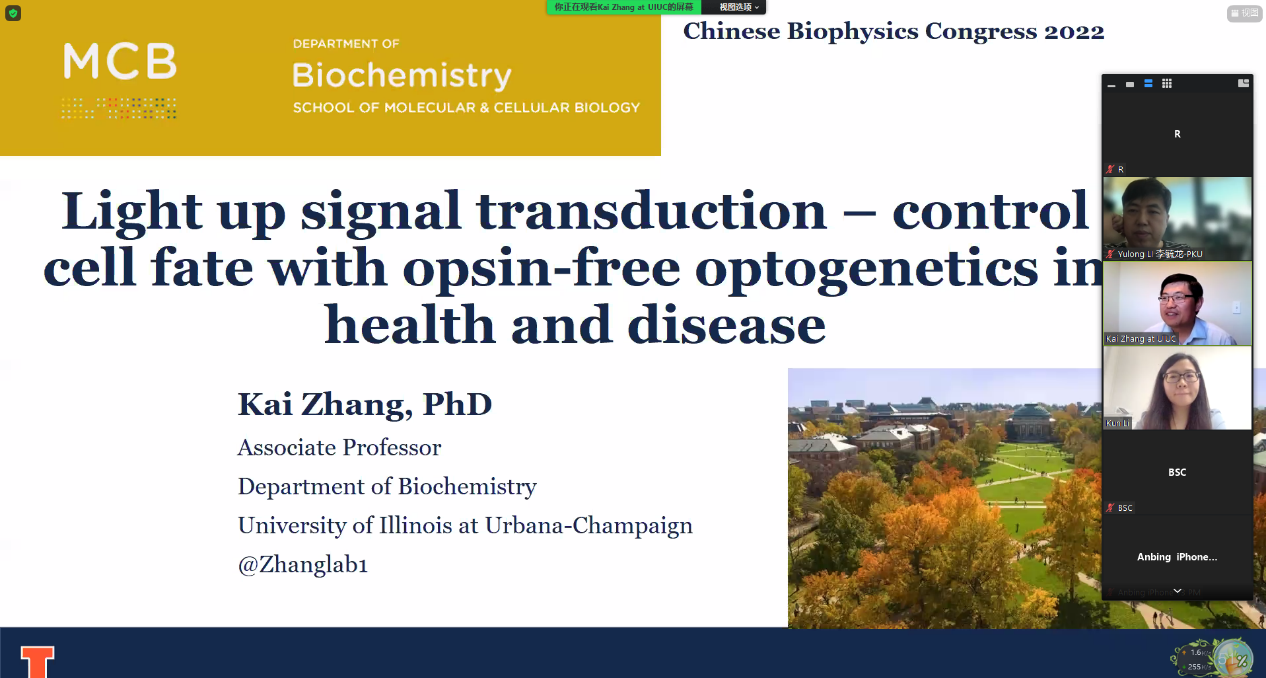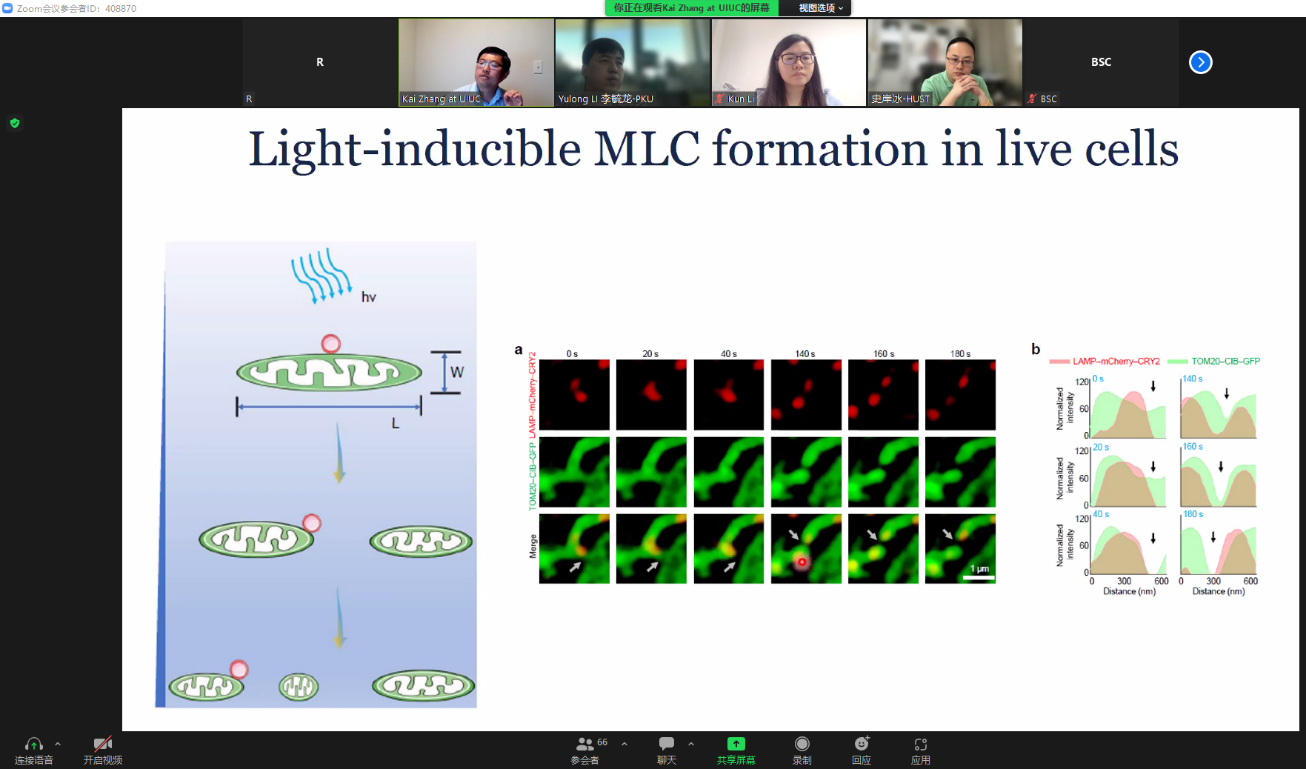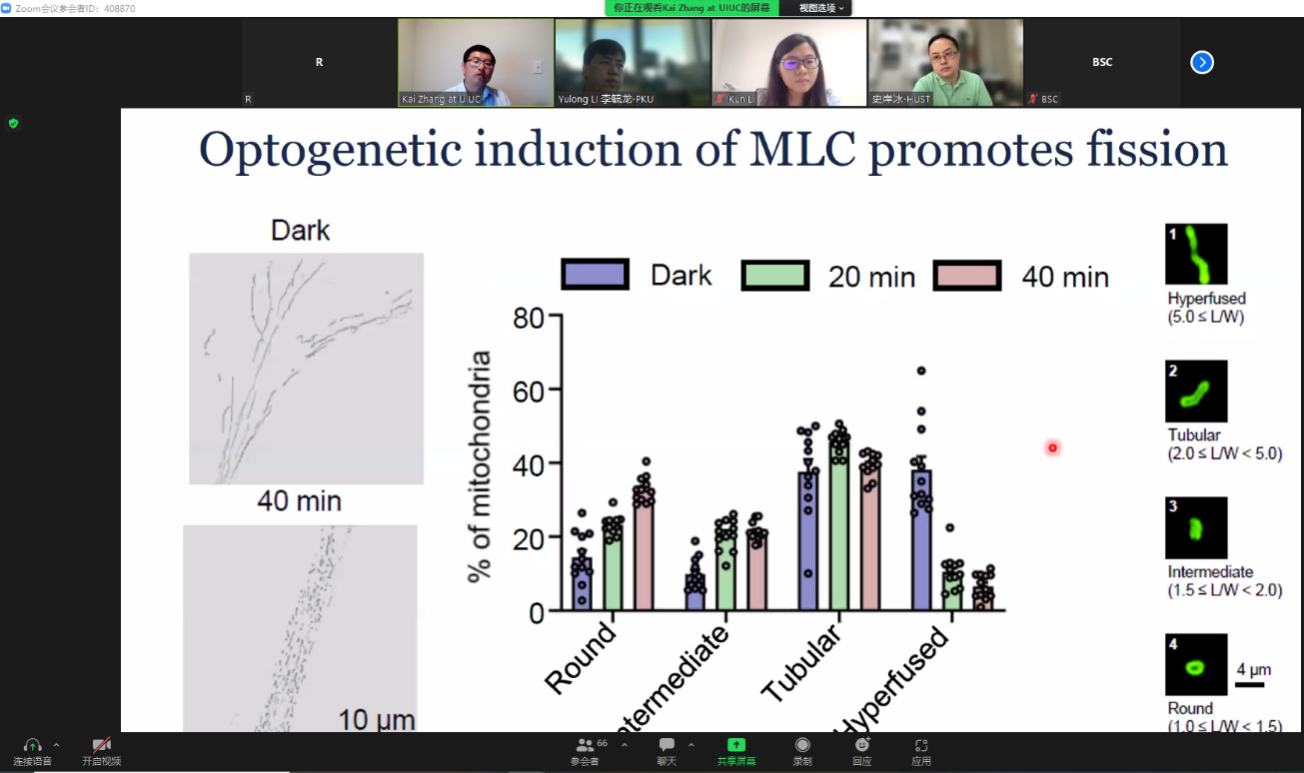On June 23, an online forum was held by the Subcellular Structures and Functions Subgroup of Biophysical Society of China with the assistance of the School of Basic Medicine, Tongji Medical College, Huazhong University of Science and Technology.

The forum was presided over by LI Kun from Tsinghua University. Prof. SHI Anbing from the School of Basic Medicine, Prof. LI Yulong from Peking University and over 60 teachers and graduate students participated in this online event.

The speaker Dr. ZHANG Kai gave the audience present a thought-provoking academic report entitled “Light up signal transduction – control cell fate with opsin-free optogenetics in health and disease”. In his speech, Dr. ZHANG introduced optogeneticscontrols cell fate through signal transduction, which can promote neural regeneration after injury and dynamically control cell fate determination during embryonic development, thus establishing generalizable optogenetic strategies for post-translational control of protein activity. Prof. SHI Anbing and Prof.LI Yulong had an in-depth discussion with Dr. ZHANG at the end of the report, exploring the application of optogenetics to nematode worms.


This online academic report gives an access to the advanced research findings from the outside world, broadens participants’ horizons, and offers researchers from different universities an opportunity to exchange their opinions and seek further cooperation.
An introduction to the speaker:
Dr. ZHANG Kai is an Associate Professor and Scialog Fellow in the Department of Biochemistry at the University of Illinois at Urbana-Champaign (UIUC). He is an affiliate faculty to the Beckman Institute, Neuroscience Program, Center for Biophysics and Quantitative Biology, and Cancer Center at Illinois at UIUC, also serving as the Associate Editor of the Journal of Molecular Biology and Frontiers in Molecular Neuroscience. Dr. ZHANG received his Bachelor of Science from the University of Science and Technology of China (USTC) in 2002 with a Guo Moruo Scholarship. He then worked at the University of California, Berkeley, and obtained his Ph.D. in Chemistry in 2008. During his training at Stanford University as an American Cancer Society postdoctoral fellow (2009-2014), he made a transition from the field of physical chemistry to neurobiology. In August 2014, Dr. ZHANG joined the Biochemistry Department of UIUC as a tenure-track assistant professor and was later promoted to an Associate Professor in the same institution.
The Zhang lab uses a synthetic biology approach to understand how physiological signaling processes are compromised in diseases and develops enabling biotechnologies to restore impaired cell functions. At Illinois, Dr. ZHANG has established a multi-disciplinary research program by integrating his expertise in biochemistry, biophysics, bioengineering, and neuroscience. The key focus of his research program includes 1) promoting neural regeneration after injury, 2) dynamic controlling of cell fate determination during embryonic development, 3) establishing generalizable optogenetic strategies for post-translational control of protein activity, and 4) developing biosensors with new nanomaterials.
